2019 IACMR Research Methods Workshop Report
2019 IACMR Research Methods Workshop was successfully held in Harbin from July 14 to 18. The School of Management of Harbin Institute of Technology (HIT) hosted this workshop.
The IACMR Research Methods Workshop is designed to meet the need for high quality research-based management knowledge in the Chinese contexts – to offer local talent training on scientific methods.
The workshop this year were joined by 120 participants from 47 universities from Mainland China, Hong Kong, Macau, Thailand, the US, Canada, Finland, Italy, the Netherlands and Australia. Six of them were young faculty members and the remaining were doctoral students. All participants were divided into 12 discussion groups and each group was led by one faculty advisor for group discussions.
The School of Management of HIT attached great importance to the workshop. The Local Arrangement Committee, headed by Professor Qiang Ye, Dean of School of Management, had been set up months earlier and the workshop preparations started very early. The HIT preparation team of faculty and students had devoted a lot of time and energy since late May. They worked hard in close cooperation, which has ensured success of the workshop. All the workshop participants were much impressed with the smooth arrangement and well cared details during the whole workshop. We would like to express our heartfelt thanks to every one of the preparation team.
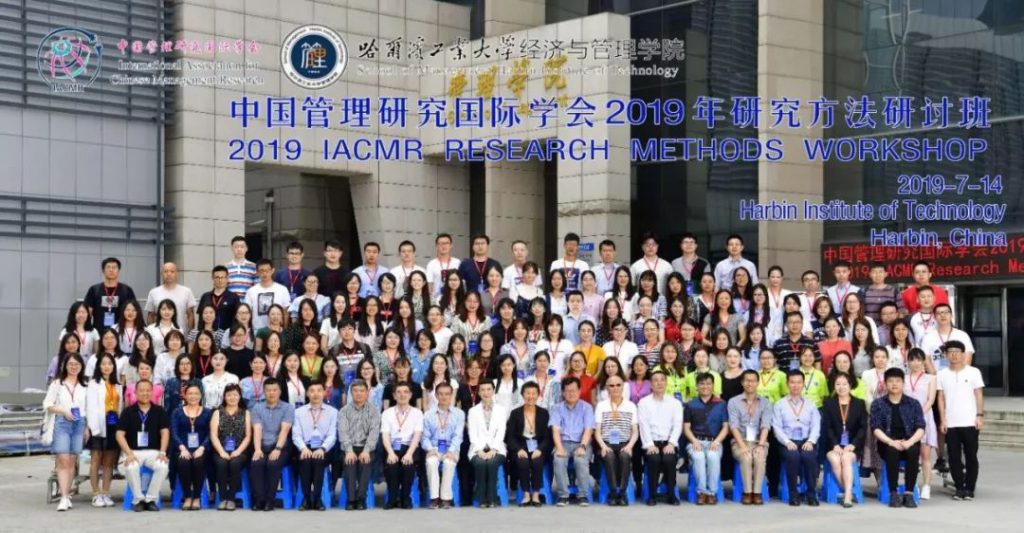
Faculty Advisors
Professor Ray Friedman of Vanderbilt University, President of IACMR, is the program chair of this workshop. He started one year ago to invite famous scholars in the field of organization and management to be faculty advisors whose research area and expertise perfectly match the program sessions. Prof. Jing Zhou of Rice University, Past President Fellow of IACMR, served as the on-site chair of the workshop and ensured smooth running of the workshop. The whole faculty provided systematic and in-depth lectures to 120 participants from home and abroad and led them through eight group discussions in four days.
Faculty team (in alphabetical order):
1. Yanjie Bian, Professor, University of Minnesota
2. Chao C. Chen, Professor, Rutgers University, IACMR President (2012-2014)
3. Jiing-Lih Larry Farh, Professor, China Europe International Business School, IACMR President (2014-2016)
4. Wei He, Associate Professor, Nanjing University.
5. Xu Huang, Professor, The Hong Kong Baptist University, IACMR Representative-at-Large, Asia Pacific (2014-2016)
6. Liangding Jia, Professor, Nanjing University, IACMR Representative-at-Large, Mainland China (2012-2014)
7. Runtian Jing, Professor, Shanghai Jiao Tong University, IACMR Vice President
8. Leigh Anne Liu, Associate Professor, Georgia State University
9. Wu Liu, Associate Professor, The Hong Kong Polytechnic University
10. Wei Shen, Professor, Arizona State University
11. Anne S. Tsui, University of Notre Dame, Arizona State University, IACMR Founding President
12. Ann Zhang, Associate Professor, Peking University
13. Zhi-Xue Zhang, Professor, Peking University, IACMR President Elect
14. Jing Zhou, Professor, Rice University, IACMR Co-President (2010-2012)
Program Framework
The program started with plenary lectures on the scientific research process, followed by sessions on how to choose a research topic, defining the research question, and developing theory and hypotheses. These sessions laid the foundation for subsequent parallel sessions.
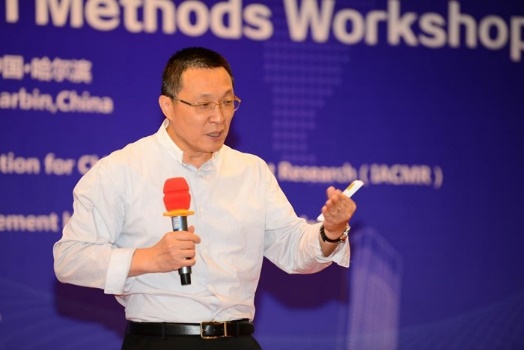
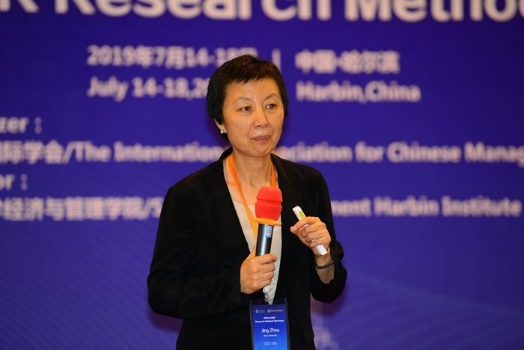
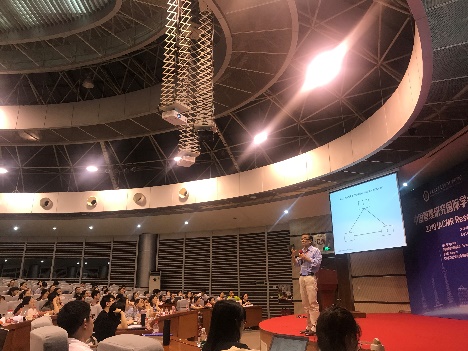
The parallel sessions focused more specifically on guidance for micro scholars (OB/HR) or macro scholars (Strategy/OT). Students went to the track that best matched their research focus. The first session was on micro or macro constructs, which illustrated major distinct but related dimensions of the OB/HRM and Strategy/OT theories, followed by sessions on specific research methods (experimental, secondary data, survey, qualitative, longitudinal, multi-level, and network analysis).
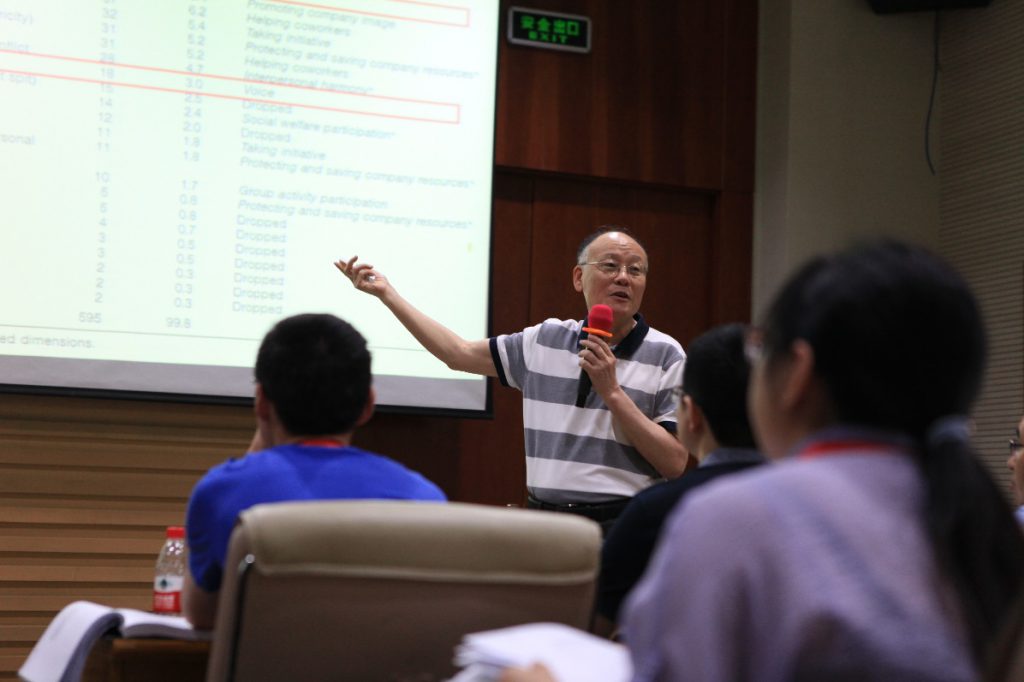
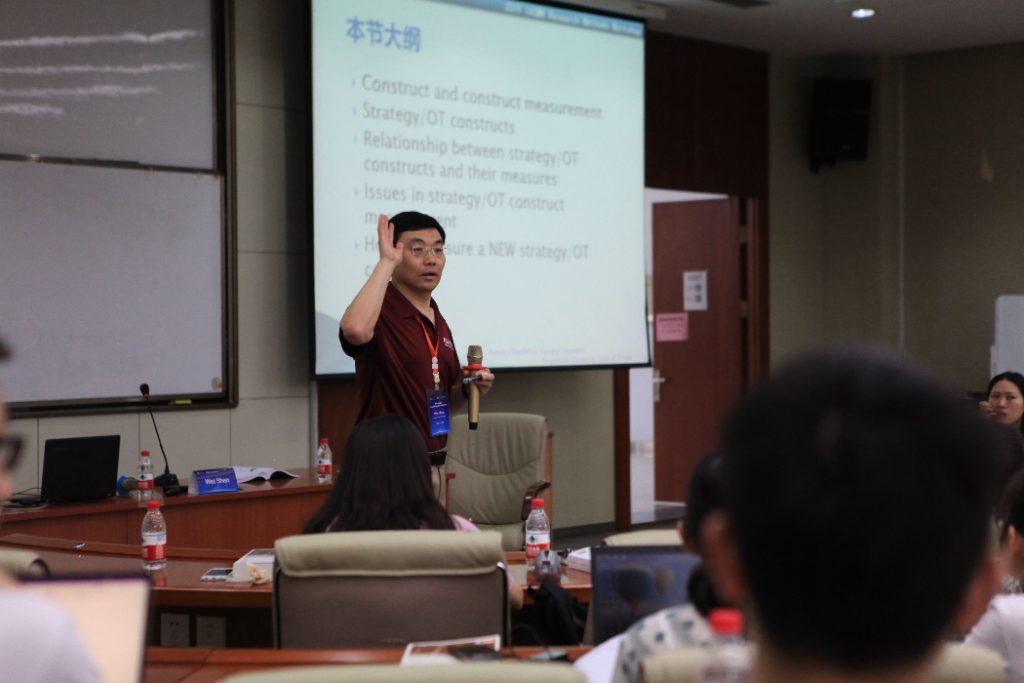
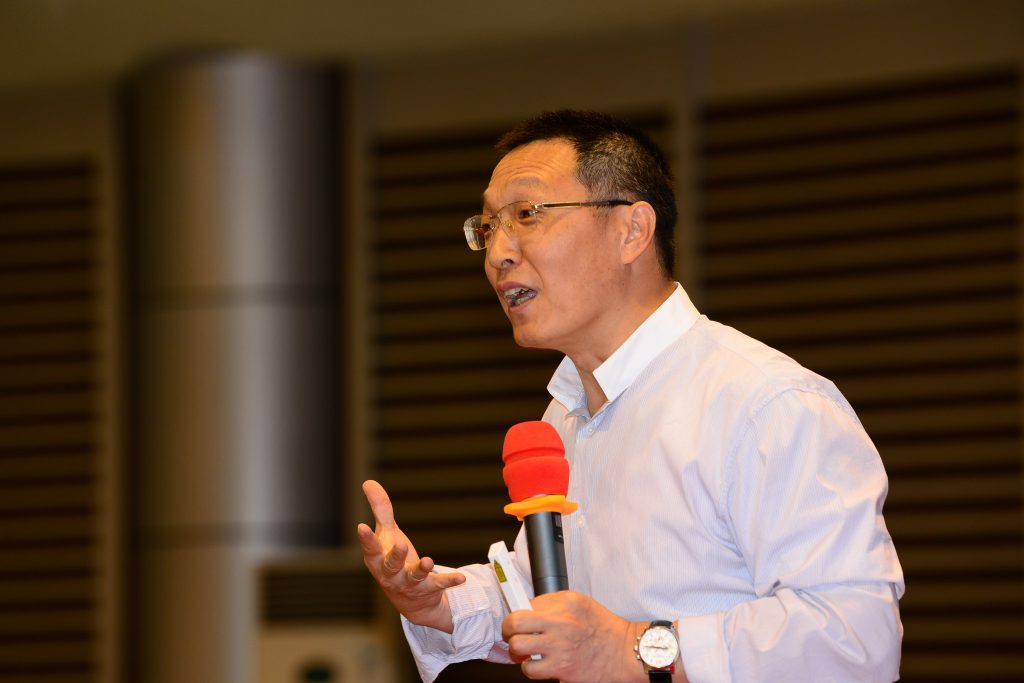
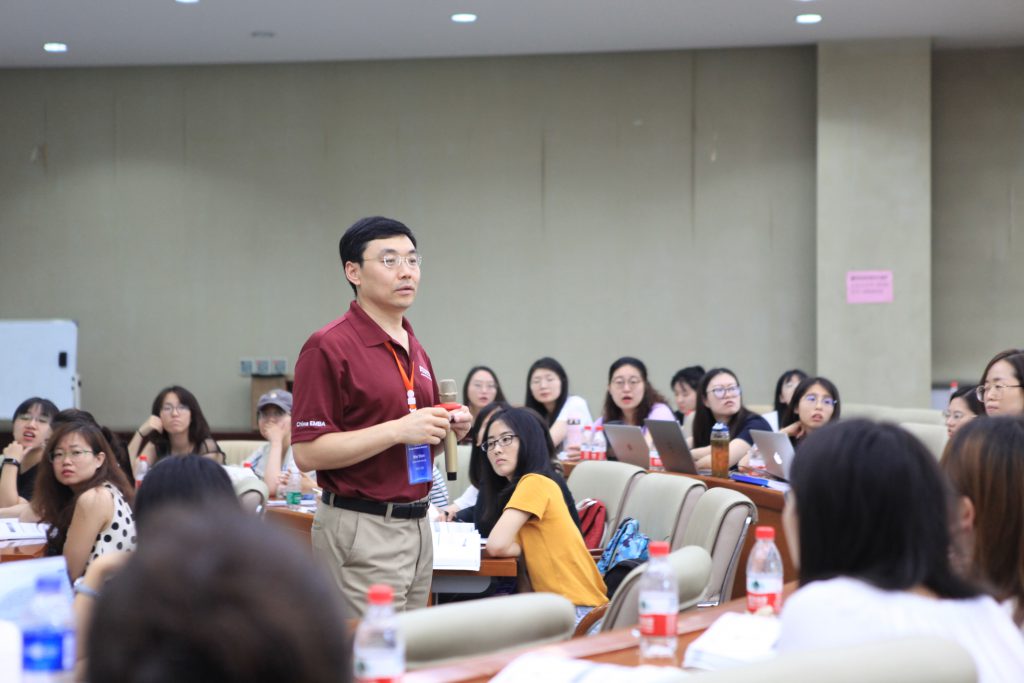
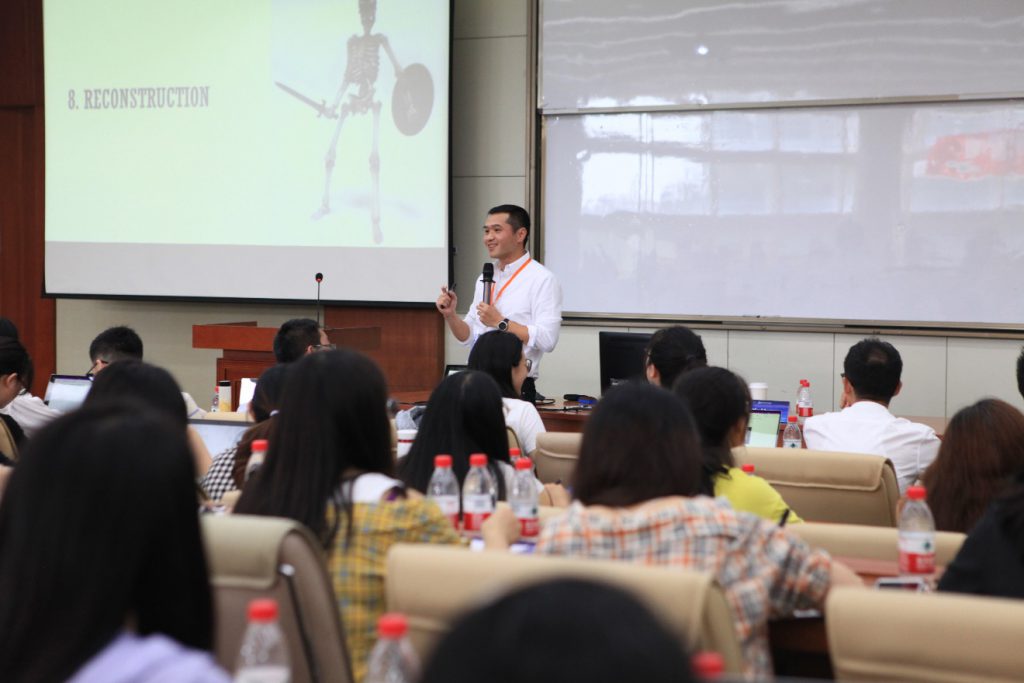
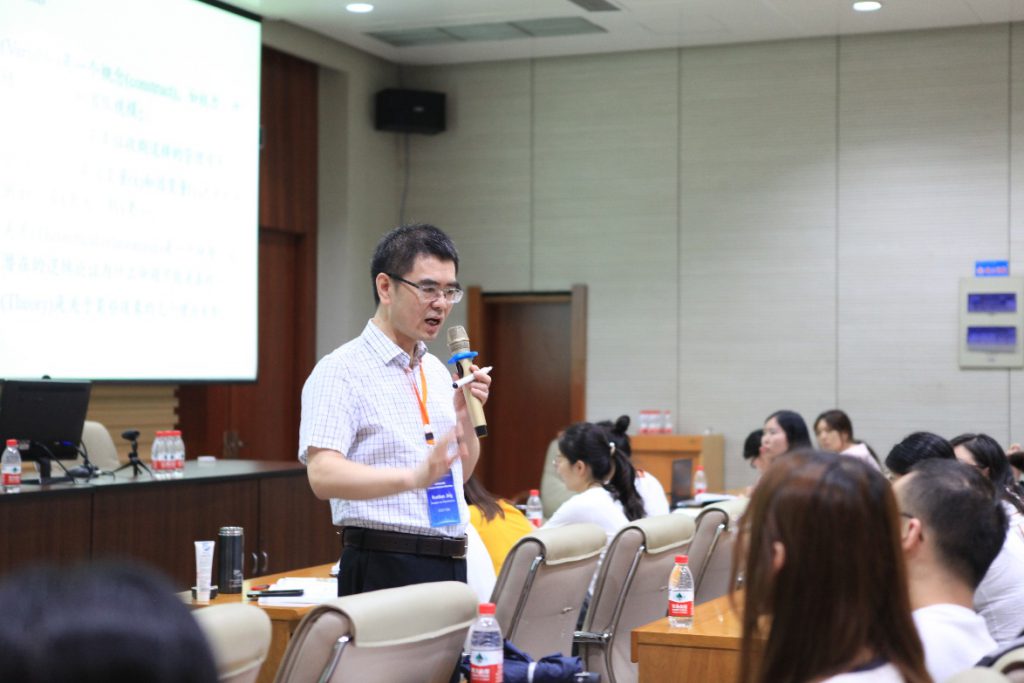
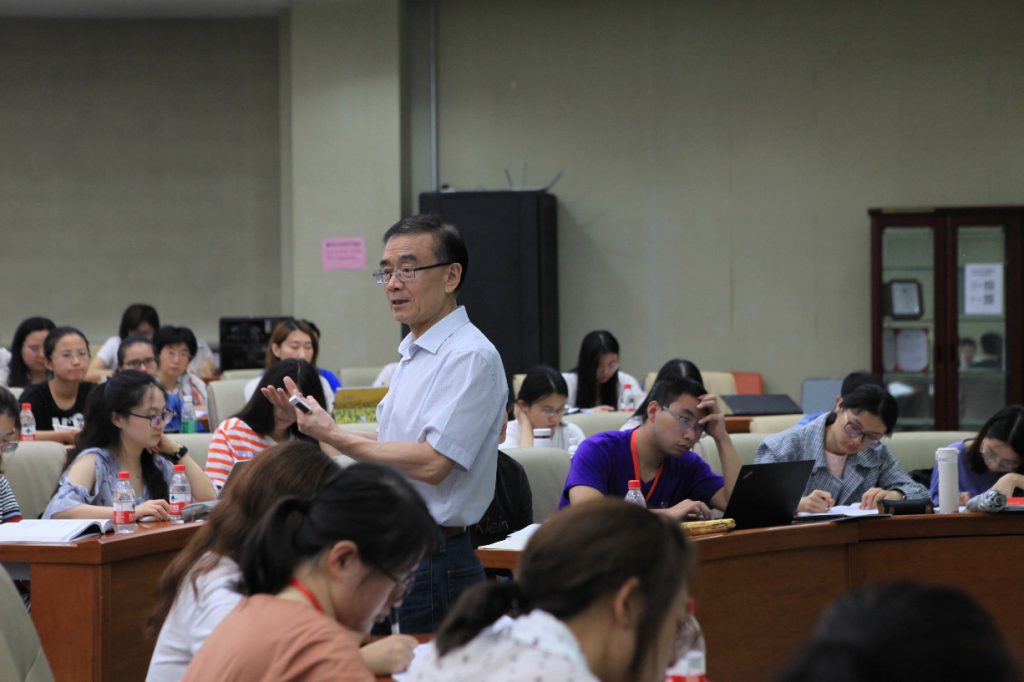
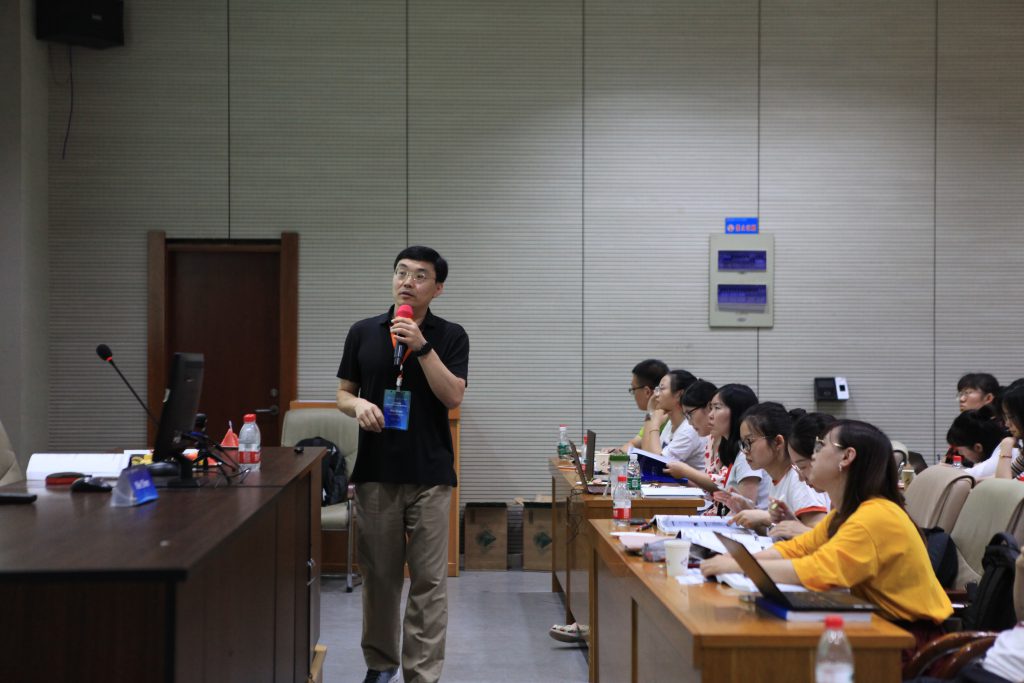
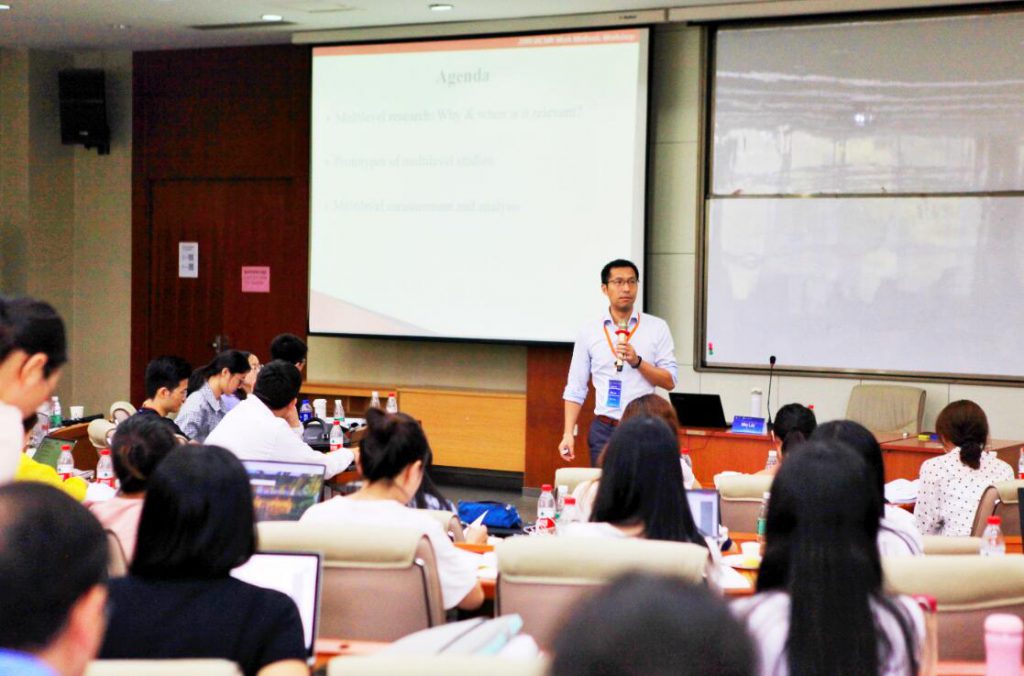
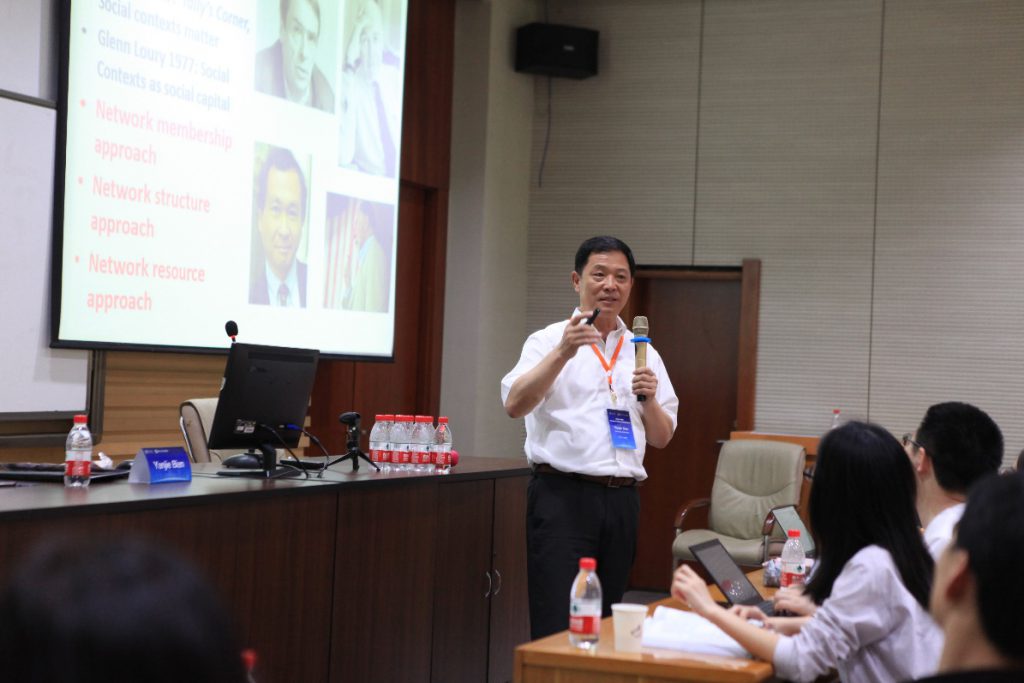
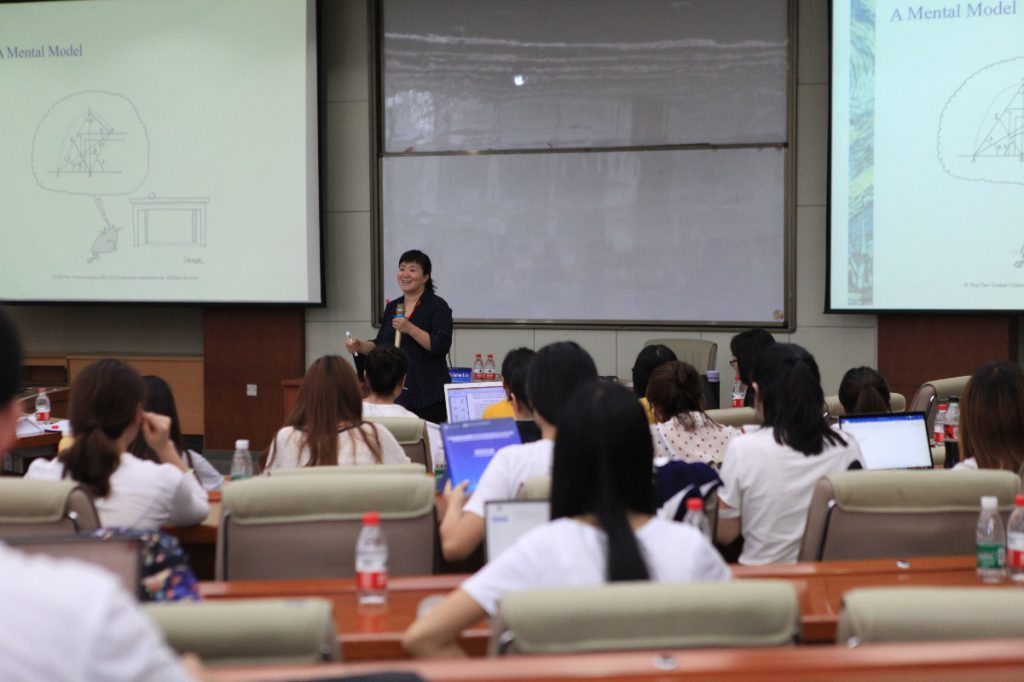
In between the lecture sessions, students met in small group discussions. Each group, led by a faculty advisor, began by sharing their research interests and presenting their research proposals. After this introduction, the group engaged in in-depth discussions of each member’s proposal, including faculty advice and suggestions. In the last group sessions, group members selected a proposal for presentation to the entire workshop, and provided suggestions for making the presentation.

Group discussion 1 
Group discussion 2
Professor Anne Tsui, Founding President of IACMR, gave the last lecture on ‘Spirit and Ethics of Science’. She put forward the concept of ‘responsible research’ and encouraged participants to do studies that contribute to basic knowledge, have implications for making the world a better place, and that are done using evidence-based high quality and societally beneficial business and management practices.
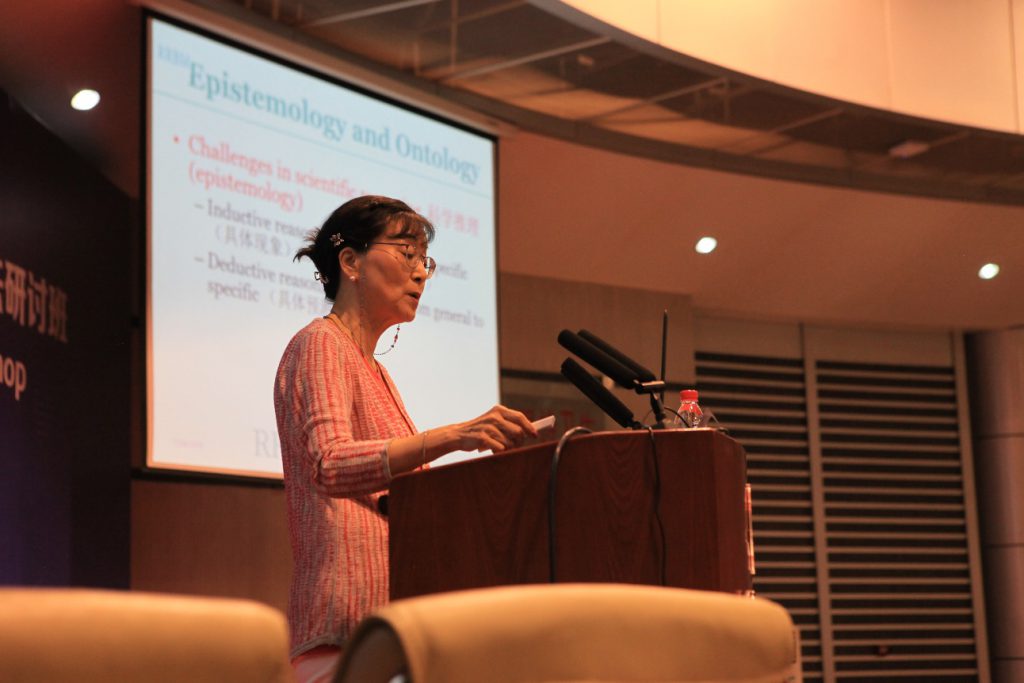
Centering on the pursuit of scientific spirit and responsible research, the overall program consists of systematic training on how to do scientific research with good understanding and application of research methods. The whole course was very demanding, including doing pre-readings assigned by faculty advisors and attending all the lectures and discussions. In particular, workshop participants benefited much from in-depth feedback and discussions of their proposals with the faculty advisors guiding the sessions and the other participants working in similar research areas, because the discussions led to constructive comments and recommendations for improving proposals. The workshop offered a unique training experience for participants and seems to have been very well-received.
Welcome Reception
Professor Tao Ma, associate dean of the School of Management of HIT, extended a sincere welcome to everyone on the welcome reception on July 14th and gave a general introduction to the School. Professor Jing Zhou, Past President of IACMR, talked about the mission of the association, its current development as well as the schedule of this workshop. During the welcome reception, all the participants got to know each other in a harmonious atmosphere.

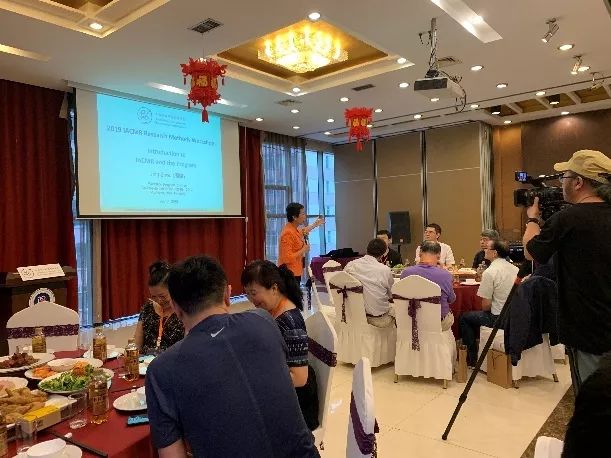
Graduation Ceremony
IACMR and the School of Management of HIT organized a graduation dinner on the evening of the last day to celebrate graduation of all participants. Prof. Chao C. Chen and faculty advisors presented graduation certificates to the participants. Each group offered splendid and interesting performance which demonstrated their reflections on doing research after attending the workshop, their gratefulness to the faculty advisors and their joyfulness in getting acquaintance with fellow students as well as their mentors who will be good friends along their careers.
The workshop was well received and all the participants gave very high marks in their evaluation forms and extended their thanks to IACMR and faculty advisors. Their feedbacks and reflections will help future workshop applicants know better about the workshop, the faculty advisors as well as doing research itself.
Selected Comments from Feedback and Reflections by Participants
– Looking back on the four-day journey of research methods, I felt particularly enriched and motivated. I was very impressed with professionalism and pursuit of excellence conveyed by the faculty members. Their passion about an academic career of finding real pleasure in developing theory and contributing to practice has made me more determined and motivated about my career as a scholar.
– In this academic feast, I felt very honored to have the opportunity to listen to so many distinguished scholars’ lectures, from which I benefited a lot. The workshop not only enabled me to further learn how to do research design, but also stimulated my persistent pursuit of scholarship, modest way of being, and rigorous logical thinking.
– The faculty advisor’s comments and suggestions were very helpful. I got to know a group of students from various universities and benefited a lot from group discussions and the faculty advisor’s advice and suggestions. Thanks to IACMR!
– The mentor of my group gave pertinent comments on each member’s proposal and I was lucky to have constructive suggestions on my proposal. In the preparation for the presentation on the last day, we worked closely as a group and everyone made helpful suggestions… Thanks to IACMR for providing us young scholars with opportunities to communicate with outstanding scholars. We look forward to meeting each other at the biennial conference next year.
– In group discussions, each member put forward valuable suggestions from their perspective, which has broadened my horizon and I benefited a lot. In addition to academic discussions, we had communications on other issues, through which I have gained both knowledge and friendship.
– The workshop lectures and group discussions were very intensive. From identification of a research topic to the design of research, I have learnt what a good research proposal should be. The outstanding fellow doctoral students made me realize my room for improvement and this is a kind of motivation for me. I was really delighted to meet excellent faculty advisors and fellow students.
– The workshop offered us opportunities to have one-on-one guidance from prominent faculty advisors. Group discussions intensified learning atmosphere among members, and the heated discussions triggered thinking in depth and beyond boundaries.
(More detailed report in Chinese is available here.)
